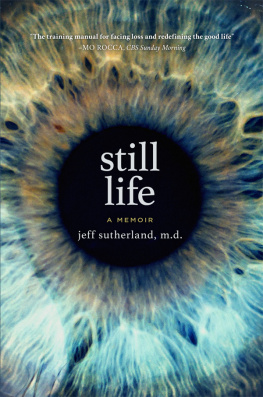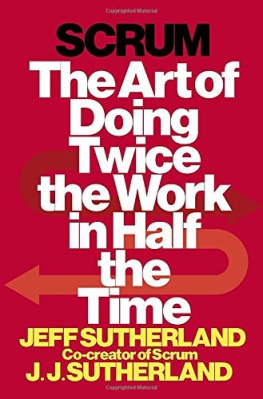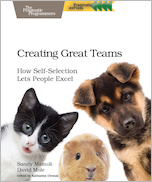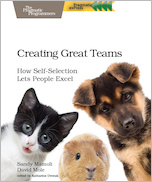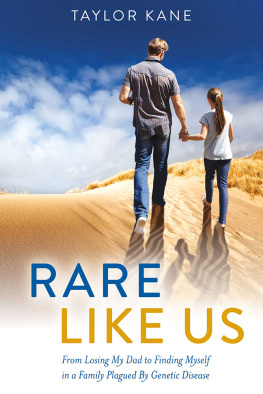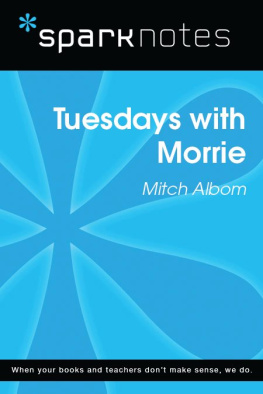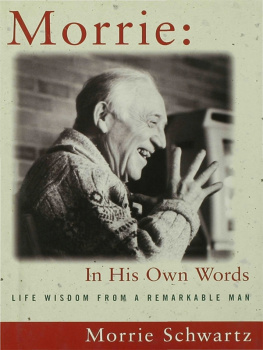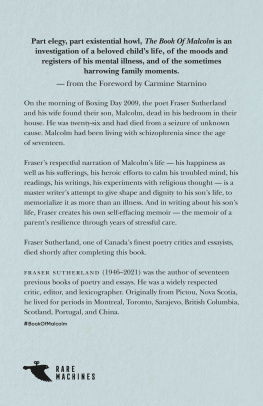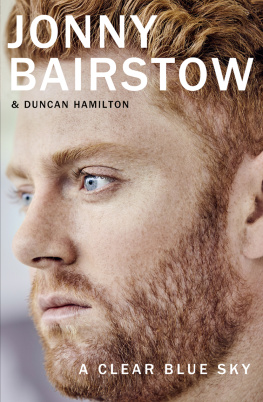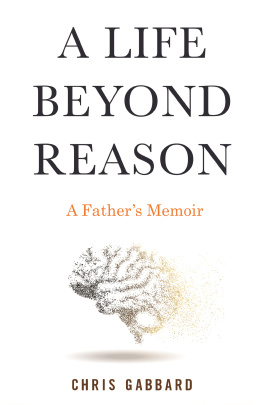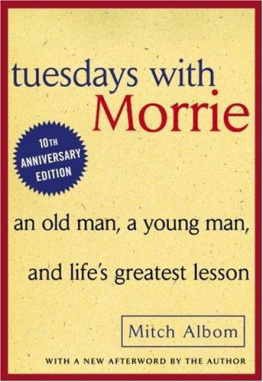STILL LIFE

Sutherland House
416 Moore Ave., Suite 205
Toronto, ON M4G 1C9
Copyright 2019 by Jeff Sutherland
All rights reserved, including the right to reproduce this book or
portions thereof in any form whatsoever. For information on rights and
permissions or to request a special discount for bulk purchases, please
contact Sutherland House at
Sutherland House and logo are registered
trademarks of The Sutherland House Inc.
First hardcover edition, September 2019
If you are interested in inviting one of our authors to a live event or
media appearance, please contact
and visit our website at sutherlandhousebooks.com for more
information about our authors and their schedules.
Manufactured in Canada
Cover designed by Lena Yang
Book composed by Karl Hunt
Library and Archives Canada Cataloguing in Publication
Title: Still life: a memoir / Jeff Sutherland.
Names: Sutherland, Jeff, 1966- author.
Identifiers: Canadiana 2019013223X | ISBN 9781999439569 (hardcover)
Subjects: LCSH: Sutherland, Jeff, 1966- | LCSH: Amyotrophic
lateral sclerosisPatientsCanadaBiography. |
LCSH: Amyotrophic lateral sclerosisPatients
Family relationshipsCanada. | LCGFT: Autobiographies.
Classification: LCC RC406.A24 S88 2019 |
DDC 362.1968/390092dc23
ISBN 978-1-9994395-6-9
EDITORS NOTE
I F A DEBILITATING AND terminal illness had been all that befell Dr. Jeff Sutherland, his story would still be remarkable. Having lost the use his limbs and all of his voluntary muscles, and along with those his flourishing career as a family physician, having lost the ability to speak, to swallow, to breathe without an external apparatus, he found the courage to accept and adapt to his condition and forge a meaningful new life for himself. With determination, technological assistance, and the support of his family, he was able to remain a vital presence in their lives and continue his involvement in his community, contributing to an extent that many able-bodied people cannot match. But Jeff Sutherlands battle with ALS is just the overture to this unconventional memoir.
It diminishes neither the magnitude of his loss or the fortitude he displayed to note that he had certain advantages in fighting his illness. He was intelligent, physically fit, and in the prime of life at age forty-one. He was a medical doctor, a man of action, one of lifes high achievers, with an abundance of resources to see him through, not least of these a loving family, a wide circle of friends, and a certain confidence and resilience reinforced by the full and happy life he had lived until illness struck. He made the most of his time before his disease had done its worst and he prepared himself as best he could for the inanimate state awaiting him. He was not so well positioned when greater tragedy struck.
A man who in his darker moments believed himself to have lost everything was staggered to find that he could, and would, lose far more. Nothing in life can prepare a person for the death of a child. That it happened in a sudden, freak accident made it all the more shocking, and senseless, and difficult to endure. The loss of Jeff Sutherlands twenty-one-year-old son, Zachary, and his girlfriend Kaya, is where this story truly begins. It dropped his father into an abyss that his own disease had never plumbed, shattering his soul and bringing him to the realization that even with ALS, he had lived a relatively unexamined life. It left him questioning his religious beliefs, the nature of the human spirit, the meaning of death, his scientific worldview, his closest relationships, his desire to go on living. He had no analogues for what he was feeling and no vocabulary to express his confusion and pain. His journey back from this abyss is the heart of his story.
It was not an easy journey, nor a quick one. It was complicated by his physical condition, and it will never be finished. It involved a long and wrenching struggle with grief, an excruciating amount of searching and personal growth, and a complete reconsideration of his core values. It raised the most profound questions a person can ask: is survival always worth the struggle, and how does one find meaning in the face of cruel tragedy? It was the hardest work of Dr. Sutherlands life, undertaken in the stillness of his physical state, accomplished in his heart and mind and recorded on a computer screen mounted eighteen inches in front of his face and manipulated by his eyes, the only parts of his body he can still control. A characteristically reticent man, he related his entire experience with stunning candor, holding back none of the depression, guilt, and despair he felt along the way, nor the love that, more than anything, allowed him to heal and gradually, tentatively reclaim the sense of purpose and even the joy he had known in his former life.
Still Life will challenge what you believe about loss, tragedy, death, and grief, and make you think about where and how you find meaning in life. At the same time, it is as uplifting a book as you will ever read. For all he has suffered, Dr. Sutherland is grateful for being alive, whatever his limitations, and convinced that the human spirit can triumph over any tragedy, and that a good life is within reach of every person no matter how extreme his or her circumstances. He distills his experience into sage advice on how to persevere and flourish in the face of adversity, whether health troubles, relationship problems, job loss, or the death of a loved one, and how to help others do the same.
It was no easy feat for Dr. Sutherland to give the world what he acknowledges is a brutally frank look at his life but because he has done so, no one who reads his book will ever need to face adversity without hope, or to feel that he or she is doing so alone.
Kenneth Whyte, Sutherland House, 2019
C HANGE IS AN INEVITABLE part of life. Sometimes we initiate it, sometimes it comes to us suddenly on its own terms, and sometimes it can be slow and insidious, apparent only in retrospect. This book deals with all kinds of change but it focuses on that which we would prefer to avoid: change that occurs against our will. That everyone faces this type of challenge at some point in life is no consolation when we are embroiled in it. No one wants these changes and still they come. When a negative change occurs, we have to choose how we will face it. We can be paralyzed with fear or we can adapt to our new reality. We can make the choice to integrate it into our life, make peace with it, and eventually grow from it. With any change, good or bad, personal growth is the ideal outcome. It is my belief that this is part of our souls mission on earth.
In this book, I will often speak of loss. We have all suffered loss, or we will in time, either ourselves or through someone we love, despite living in a society that minimizes loss as though it is a rarity. Deep personal loss for some unknown reason has wrapped its tentacles around my family and me for the last twelve years of my life. My losses have at certain points felt unbearable, and still I lost more. I will tell this story with the only tool I have left for communication: my eyes. It is a story about living with extreme limitations and trying to make peace with and still prosper with what the universe has given my family and me, both good and bad. It is about love and the efforts we have made to integrate our losses into our lives in a healing manner. With the tragedies we have had to endure, the greatest would be if we enabled more tragedy to ripple throughout our future lives.
Next page
